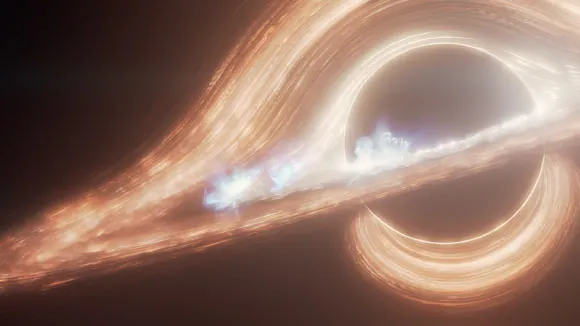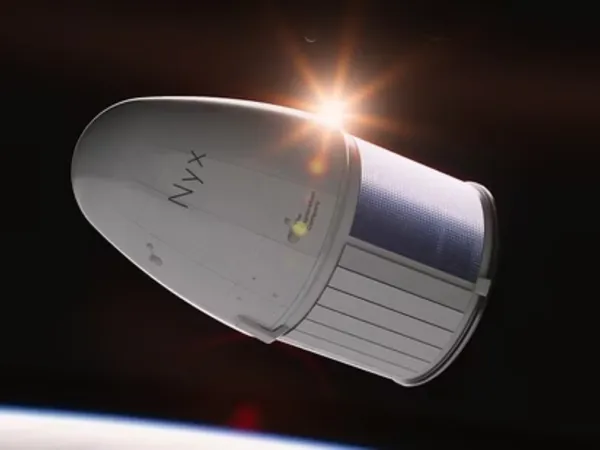
Unlocking the Universe: How Black Holes Might Become the Ultimate Particle Supercolliders
2025-06-04
Author: Sarah
Astrophysicists Discover Cosmic Particle Accelerators
Imagine harnessing the unfathomable power of black holes as cosmic particle colliders! A groundbreaking study from physicists at the University of Oxford, Johns Hopkins University, and the Paris Institute of Astrophysics reveals that the violent collisions of particles plummeting into black holes could create natural gravitational accelerators, generating energies rivaling those found in high-tech human-made colliders.
The Quest for Dark Matter Revealed
These cosmic events could expose us to new, undiscovered particles, potentially shedding light on the enigmatic dark matter that makes up a significant portion of the universe but remains elusive. Professor Joseph Silk, a prominent astrophysicist involved in the study, highlights that, while current efforts like the $30 billion Large Hadron Collider aim to unlock dark matter's secrets, nature might offer even more potent insights.
The Power of Supermassive Black Holes
Supermassive black holes spin with a ferocity unmatched by anything known, unleashing bursts of plasma that can mirror the effects seen in particle colliders. These extraordinary jets, driven by the black hole's spin and surrounding materials, could result in high-energy proton collisions, producing signals detectable here on Earth.
Chaotic Collisions and Their Remarkable Outcomes
In the vicinity of these rapidly spinning giants, particle collisions can occur with incredible chaos. Not all particles vanish into the black hole; some emerge with astonishing acceleration. Professor Silk notes that these energetic streams could yield powerful particles, potentially revealing new physics and enhancing our understanding of dark matter.
Harnessing the Universe’s Energy
This research suggests that the black hole's unique environment could generate particles with energies matching or surpassing those of future colliders. While human technology is formidable, it can't compete with the raw energy of a black hole's turbulent surroundings.
A New Frontier in Cosmic Detection
Detecting these energetic particles could be achieved through existing observatories monitoring cosmic phenomena, such as the IceCube Neutrino Observatory in Antarctica and the Kilometer Cube Neutrino Telescope in the Mediterranean. Even from the vast distances of the cosmos, these signals have the potential to reach us.
A Revolutionary Study Takes Flight
Published in *Physical Review Letters*, this exciting research opens up new avenues for exploration in astrophysics. As we look to the stars, the secrets held within black holes might just be the key to understanding the universe in ways we've only begun to imagine.


 Brasil (PT)
Brasil (PT)
 Canada (EN)
Canada (EN)
 Chile (ES)
Chile (ES)
 Česko (CS)
Česko (CS)
 대한민국 (KO)
대한민국 (KO)
 España (ES)
España (ES)
 France (FR)
France (FR)
 Hong Kong (EN)
Hong Kong (EN)
 Italia (IT)
Italia (IT)
 日本 (JA)
日本 (JA)
 Magyarország (HU)
Magyarország (HU)
 Norge (NO)
Norge (NO)
 Polska (PL)
Polska (PL)
 Schweiz (DE)
Schweiz (DE)
 Singapore (EN)
Singapore (EN)
 Sverige (SV)
Sverige (SV)
 Suomi (FI)
Suomi (FI)
 Türkiye (TR)
Türkiye (TR)
 الإمارات العربية المتحدة (AR)
الإمارات العربية المتحدة (AR)